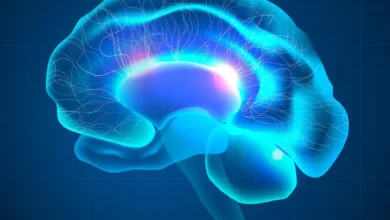Latest Articles
-
Jun- 2023 -29 JuneDisease

Mammalian Evolution: A Genetic Time Capsule Revealing the Origins of Human Diseases
Lead Image: Researchers from UNC School of Medicine are using evolutionary genomics to understand human diseases. They focus on unchanged, highly constrained genes through the mammalian evolution. This new perspective allows tracing of psychiatric and neurological disorders to alterations in these genes. This could provide insights into various mental health conditions and possibly allow researchers to lessen the effects of genetic diseases by manipulating certain DNA sequences. A team of scientists has created a new manual researchers can use to learn more about the origins of human diseases with high genetic risk. Hundreds of scientific studies have been conducted over…
Read More » -
29 JuneAstronomy

Louder Than Expected: Gravitational Waves From Merging Supermassive Black Holes “Heard” for First Time
Lead Image: Following 15 years of observing pulsars, the NANOGrav collaboration has detected gravitational waves stronger than ever before, likely produced by supermassive black hole pairs. This groundbreaking discovery presents the first evidence for the gravitational wave background, which is surprisingly louder than anticipated, possibly pointing to an abundance of supermassive black holes or alternative gravitational wave sources. After 15 years of carefully observing stars called pulsars throughout our galaxy, the NANOGrav collaboration has “heard” the perpetual chorus of gravitational waves rippling through our universe. Following 15 years of data collection in a galaxy-sized experiment, scientists have “heard” the perpetual…
Read More » -
25 JuneBrain

Daily Multivitamin Supplements Improve Memory and Slow Cognitive Aging in Older Adults
Lead Image: The COcoa Supplement and Multivitamin Outcomes Study (COSMOS), a nation-wide randomized trial led by researchers from Brigham and Women’s Hospital and Columbia University, has found that daily multivitamin supplements improve memory and slow cognitive decline in older adults Second major study from COSMOS finds that participants randomized to receive a daily multivitamin supplement showed improvements in memory compared to placebo. The study, COSMOS-Web, involved over 3,500 participants aged 60 and older who took either multivitamins or a placebo and underwent annual cognitive assessments for three years. The multivitamin group demonstrated significant memory improvement equivalent to a 3.1 year…
Read More » -
24 JuneBrain

Double Duty: HIV Drug Maraviroc Takes On Dementia and Huntington’s Disease
Lead Image: Researchers at the University of Cambridge have found a way to enhance the brain’s self-cleaning process (autophagy) in mice with Huntington’s disease and dementia. They discovered that an existing HIV drug, maraviroc, can inhibit a switch (CCR5) that impairs autophagy, leading to a reduction in harmful protein build-up and potentially slowing down memory loss. HIV drug helps protect against build-up of dementia-related proteins in mouse brains. Cambridge scientists have shown how the brain’s ability to clear out toxic proteins is impaired in Huntington’s disease and other forms of dementia – and how, in a study in mice, a…
Read More » -
22 JuneBiophotonics

The Future of Medical Diagnostics: All-Purpose Biosensor Chip With 10,000-Fold Increase in Detection Range
Researchers have developed new signal-processing techniques that were used with an optofluidic biosensor chip to detect a mixture of nanobeads across concentrations that varied by eight orders of magnitude. Credit: Holger Schmidt, ECE Department, University of California, Santa Cruz Detection across widely varying concentrations down to single-molecule could enable multiple medical tests to be performed on a single portable device. UC Santa Cruz scientists have significantly improved chip-based biosensors, expanding their concentration range detection by over 10,000 times. These advancements enable a single device to perform multiple medical tests simultaneously on different biomolecules, even at vastly different concentrations. The team…
Read More »










